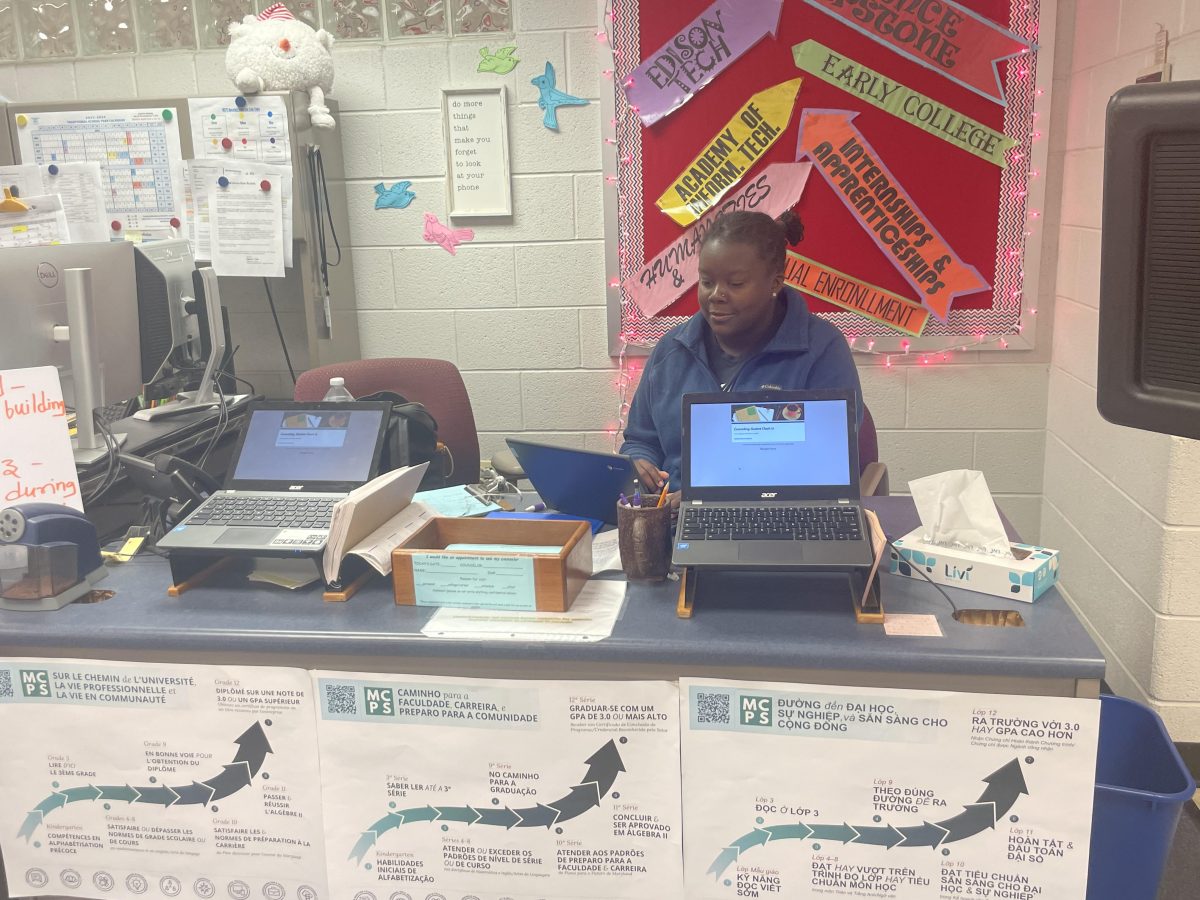Four students wait outside counselor Elizabeth Robinson’s office. The first in line is a senior who is stressed about college. The second is a freshman who is struggling with their newfound workload, third in line is a girl heartbroken over her ex, and last in line is a boy in need of immediate help for his thoughts of self-harm. Mental health among teens in America is constantly changing, for better and for worse.
Mental health is in dire need of a solution now more than ever before. Students see people struggling with their mental health around them all the time. Although everyone’s experience is different, students can start to see mental health struggles around them at any time. “In sixth grade, I started to realize that the people around me were struggling with mental health issues,” freshman Elena Bernal said.
The stigma surrounding mental health has a big impact on whether or not people seek help. The stigma has greatly improved in comparison to previous years in Bernal’s opinion. “I think the stigma surrounding mental health is encouraging others who are struggling and scared of judgment to be willing to get help,” Bernal said.
The mental health stigma has been a controversial topic for a long time. The opinion that the stigma surrounding mental health negatively impacts people’s willingness to get help is thought of to be one of the main causes of the mental health crisis. “I feel as if people believe you’re seeking attention if you say you have mental health issues,” sophomore Charlie Rollins said.
Although there are varying opinions on what schools should do to help student’s mental health, student leaders feel the schools need to make mental health resources more well-known to students. Student leaders believe that schools are offering enough mental health services to students, however, if people don’t know how to get help, they won’t. “I think making the resources we have access to more known to all students and letting them know that it is always OK to reach out for help is a great first step,” Rollins said.
Whether or not mental health is taken seriously enough is a controversial and highly discussed topic. People take one of two positions on the topic, mental health is taken seriously enough, or that mental health is not taken seriously enough. “In the government, there are two parties, one which takes mental health seriously and the other who doesn’t. If the party that doesn’t support it is elected, it makes it seem like mental health isn’t taken seriously as a country,” Counselor Elizabeth Robinson said.
Students and staff alike are hopeful that mental health will begin an upward trajectory in the upcoming years. Lack of access to support is thought to be the biggest problem when talking about the mental health of teens in America. “My hope is that the access to support outside of schools will become more available,” Robinson said.







![Editors-in-Chief Ahmed Ibrahim, Helen Manolis, Cameron Cowen, Alex Grainger, Emory Scofield, Hayley Gottesman, Rebekah Buchman and Marley Hoffman create the first print magazine of the year during the October press days. “Only a quarter of the schools in MCPS have programs that are like ours, a thriving, robust program. That makes me really sad. This is not just good for [the student journalists] to be doing this, it’s good for the entire community. What [student journalists] provide to the community is a faith in journalism and that continues for their lifetimes," Starr said.](https://woottoncommonsense.com/wp-content/uploads/2025/10/wmpoFTZkCPiVA3YXA4tnGoSsZ4KmnKYBIfr18p3l-900x1200.jpg)

